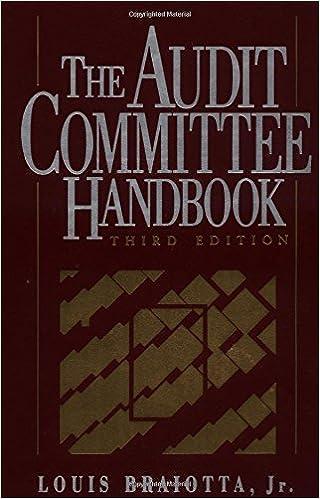Question
Please read the case study below and use the Codification Research System to search for the solution to the issues raised at the end of
Please read the case study below and use the Codification Research System to search for the solution to the issues raised at the end of the discussion in the Required section.
In formulating your response, please cut and paste those paragraphs noted above that you used to derive your answer.
WHAT HAPPENS WHEN YOU BARTER WITH STOCK?
Does It Matter Whether Its Treasury Stock or Newly Issued Stock?
Clyde: I acquired this land for my business by issuing stock. I did not pay a penny. Since its my stock, and I decided how much to give up for the land, does that mean I get to determine the value of the land on my balance sheet?
Fredrika: You could have issued the stock to somebody else, taken the cash received, and paid for the land, right?
Clyde: I suppose I could have, but I did not.
Fredrika: The fact that you could have does imply there is some value for the stock and that it can be determined by referring to the market for that stock.
Clyde: I also bartered for some equipment. I exchanged some treasury stock for those assets. I suppose you are going to suggest that I could have reissued that treasury stock to somebody else, taken the proceeds, and purchased the equipment instead. While I could have, I did not.
Fredrika: What exactly did you expect the advantage to be of bartering with treasury stock? For that matter, why did you issue stock for the land rather than merely pay cash?
Clyde: Frankly, I thought that would allow me to set the value of both the land and the equipment. I mean, when you pay cash, that is the amount paid - open and shut. Whereas, when you barter with goods, services, or in my case stock, dont I have some discretion then?
Fredrika: Do you believe you paid a fair price in stock?
Clyde: Certainly. I mean, I would not have given up the stock unless I thought I received fair value in exchange. Are you telling me that the identical value would be recorded in my barter exchanges as if I had given up cash instead of stock or Treasury Stock?
Required:
Does Clyde have more discretion in the recording of his bartering exchanges than he would have had by paying cash? Use the FASBs Accounting Codification System to answer this question and briefly explain why. Provide the specific citation(s) paragraphs that support your answer by cutting and pasting them from Accounting Standards Codification. Do you think it matters whether treasury stock or newly issued stock is used?
Step by Step Solution
There are 3 Steps involved in it
Step: 1

Get Instant Access to Expert-Tailored Solutions
See step-by-step solutions with expert insights and AI powered tools for academic success
Step: 2

Step: 3

Ace Your Homework with AI
Get the answers you need in no time with our AI-driven, step-by-step assistance
Get Started


